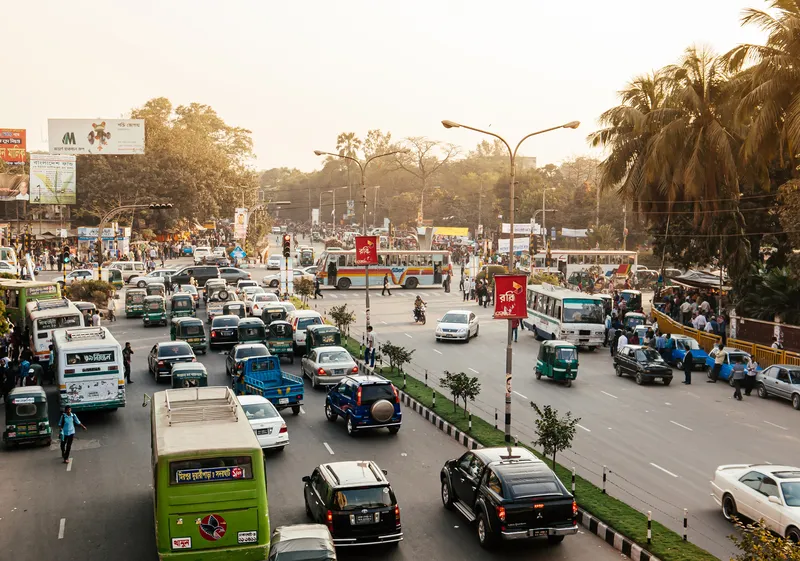With its integrated transport information system (ITIS) in ruins and waiting to be sold for salvage, Kuala Lumpur’s government has awarded a contract to improve its traffic management. GTC Global won the US$62 million contract last year to bring ITIS back on track. The company was recently acquired by Telekom Malaysia.
In 2002, a traffic surveillance system costing more than US$93 million was launched to gather, process and supply real-time traffic information to reduce congestion in Kuala Lumpur. It we
April 9, 2014
Read time: 2 mins
With its integrated transport information system (ITIS) in ruins and waiting to be sold for salvage, Kuala Lumpur’s government has awarded a contract to improve its traffic management. GTC Global won the US$62 million contract last year to bring ITIS back on track. The company was recently acquired by Telekom Malaysia.
In 2002, a traffic surveillance system costing more than US$93 million was launched to gather, process and supply real-time traffic information to reduce congestion in Kuala Lumpur. It went live in 2005 and less than two years later became a target for vandals and its technology soon became obsolete.
When Kuala Lumpur mayor Datuk Seri Ahmad Phesal Talib took office 18 months ago, the system was performing at 60 per cent capacity. He has guaranteed that the new system will be more cost-effective, efficient and able to keep pace with rapidly changing technological advances.
“We are confident of Telekom’s ability to handle this project, but this time, we are doing it differently. Instead of managing the system, we will lease the necessary equipment to them so that their contractor takes the risk,’’ said Ahmad Phesal. “We expect ITIS to be fully restored by the middle of the year. We have finished installing 90 per cent of the CCTV units in the city to ensure public safety and the 140 variable message signs (VMS) are currently being installed and will be fully operational soon.”
ITIS is a federal government project developed by ITS Konsortium intended to solve Kuala Lumpur’s traffic congestion problem. The traffic management centre (TMC) links the system’s two main components, the advanced traffic management system (ATMS) and the advanced traveller information system (ATIS). The system also includes 140 VMS, 255 CCTV and automatic incident detection. Traffic signals are linked to the TMC but are controlled separately.
In 2002, a traffic surveillance system costing more than US$93 million was launched to gather, process and supply real-time traffic information to reduce congestion in Kuala Lumpur. It went live in 2005 and less than two years later became a target for vandals and its technology soon became obsolete.
When Kuala Lumpur mayor Datuk Seri Ahmad Phesal Talib took office 18 months ago, the system was performing at 60 per cent capacity. He has guaranteed that the new system will be more cost-effective, efficient and able to keep pace with rapidly changing technological advances.
“We are confident of Telekom’s ability to handle this project, but this time, we are doing it differently. Instead of managing the system, we will lease the necessary equipment to them so that their contractor takes the risk,’’ said Ahmad Phesal. “We expect ITIS to be fully restored by the middle of the year. We have finished installing 90 per cent of the CCTV units in the city to ensure public safety and the 140 variable message signs (VMS) are currently being installed and will be fully operational soon.”
ITIS is a federal government project developed by ITS Konsortium intended to solve Kuala Lumpur’s traffic congestion problem. The traffic management centre (TMC) links the system’s two main components, the advanced traffic management system (ATMS) and the advanced traveller information system (ATIS). The system also includes 140 VMS, 255 CCTV and automatic incident detection. Traffic signals are linked to the TMC but are controlled separately.









